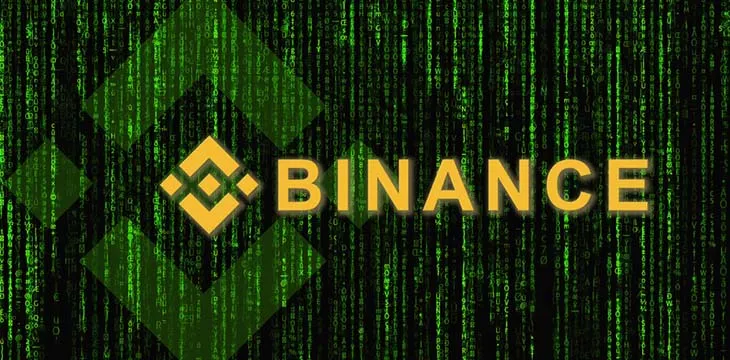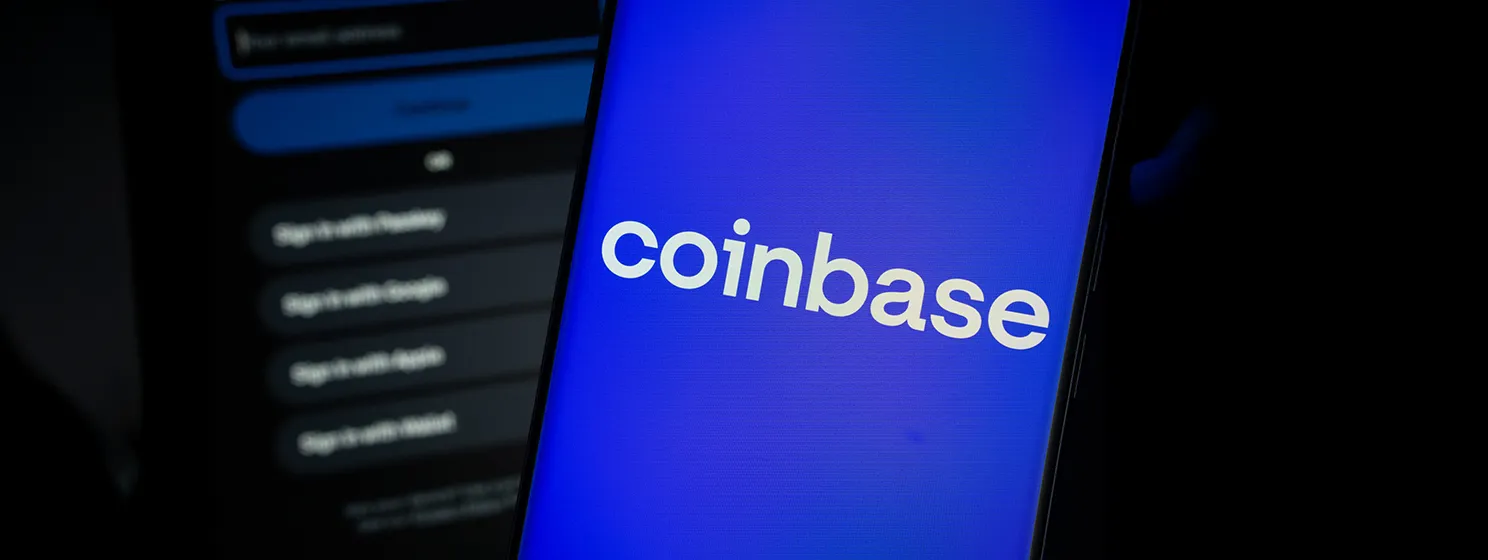|
Getting your Trinity Audio player ready...
|
Binance is under investigation for violating economic sanctions against Russia, opening up another front in the digital asset exchange’s long-running war against compliance.
Last Friday, May 6, Bloomberg reported that the U.S. Department of Justice’s (DoJ) national security division is investigating whether Binance violated U.S. economic sanctions by allowing Russian customers to transact via the exchange. The sanctions were imposed in April 2022 following Russia’s invasion of neighboring Ukraine. Binance initially imposed certain restrictions on Russia-based customers but declined Ukrainian requests to freeze all Russian accounts.
In response to Bloomberg’s report, Binance issued a statement repeating its standard (evidence-free) assertions that starting in 2021, it “launched an initiative to completely overhaul its corporate governance structure.” The statement ignored the specifics of the DoJ’s latest reported probe, which is but one of many by U.S. federal agencies into Binance’s dodgy dealings, including enabling Iran-based customers to transact in violation of U.S. sanctions.
Binance’s protestations were undercut by recent reports that Russian customers were again able to fund their exchange accounts using Visa (NASDAQ: V) and Mastercard (NASDAQ: MA) cards issued by Russian banks. Last month also saw Binance rescind its previous restrictions on exchange accounts exceeding €10,000 ($10,992), which had been relegated to ‘withdraw only’ mode since Russia’s invasion.
While Binance insists that it still doesn’t permit Russian customers to transact via U.S. dollars, the exchange has ties to Russia-linked payment processor Advcash. Dirty Bubble Media recently reported that Advcash is now offering Russian customers the option of converting rubles to USD, as well as buying ‘crypto’ directly from Advcash via its partnership with Binance, offering an effective workaround to economic sanctions.
Binance’s ties to Russia were already under scrutiny following January’s takedown of ransomware-friendly exchange Bitzlato. Binance was identified as Bitzlato’s top receiving counterparty, with around $346 million in BTC transferred between the sites.
Bitzlato also had extensive ties to the Hydra darknet marketplace, which was taken down in April 2022. In March, the U.S. Commodity Futures Trading Commission (CFTC) filed civil charges against Binance, citing internal communications in which senior Binance execs discussed users who were identified as major Hydra customers. Instead of banning these users, Binance’s chief compliance officer Samuel Lim suggested they open new accounts that weren’t “tainted” by their association with “illicit activity.”
Not so suave
The Binance C-suite’s habitual predisposition towards indiscretion in internal communications makes it all the more likely that the DoJ is employing a Racketeering Influenced and Corrupt Organizations (RICO) Act strategy to bring the exchange to justice.
RICO allows the DoJ to prosecute the leaders of criminal organizations for ordering or assisting others in committing crimes, including financial crimes. The organizations themselves can also be charged for carrying out these orders.
In the 1980s, junk bond financier Michael Milken and his firm Drexel Burnham Lambert were indicted for insider trading and other crimes, marking the first non-Mafia-related RICO charges. Milken did 22 months in prison and paid hundreds of millions in fines/restitution while his company was forced into bankruptcy.
All the DoJ really needs to do is nab one Binance exec on U.S. soil—or detained internationally via an Interpol Red Notice—and then flip that individual so they can proceed up the food chain to Binance founder Changpeng ‘CZ’ Zhao.
The fact that dark web marketplaces are currently offering to sell verified account access to several exchanges—including Binance—will likely make it even easier for the DoJ to expose the lie behind Binance’s compliance claims. (Order now, and we’ll also send you a copy of CZ’s A-Z Guide to Money Laundering for Fun and Profit absolutely free!)
As if the DoJ didn’t already have enough incentive, Israeli media reported last week that local counter-terrorism authorities had seized nearly 200 Binance accounts for their connections to terror groups, including Hamas and the Islamic State (ISIS). Ask not for whom the bell tolls, CZ…
Delayed gratification
Binance sparked alarm bells on Sunday after pausing—not once, but twice—withdrawals of BTC tokens due to what the exchange claimed was “a congestion issue” on the BTC blockchain. (Notably, BTC deposits appeared unaffected by this congestion.) Binance denied that the pause was due to the exchange experiencing an unprecedented volume of BTC withdrawal requests following Bloomberg’s Russia report, claiming that this outflow was “movements between Binance hot and cold wallets.”
Sunday’s second ‘pause’ was similarly blamed on “the large volume of pending transactions” on the BTC chain. There is indeed a significant backlog in the BTC chain’s mempool stemming from the sudden popularity of Ordinals-based ‘inscriptions’ and a flurry of new tokens issued under the BRC-20 standard.
Binance later claimed that withdrawals weren’t being processed due to the exchange failing to offer sufficiently high fees to ensure transactions made it into the next block. (Hilariously, Binance called these “gas fees,” apparently confusing it with the Ethereum chain’s notoriously wonky fee structure.)
Binance claimed that such hiccups were less likely to occur in the future because it had “adjusted” (aka hiked) its fees to make transactions more appealing to BTC miners. Binance further claimed it was “working on enabling BTC Lightning Network withdrawals, which will help in such situations.”
Except moving everything to centralized Blockstream Bucks isn’t ideal because until you settle up on the main BTC network, you’re being asked to trust, not verify, that Adam Back’s on the up and up. And the price of opening and closing a Lightning channel on the main network is still prohibitive for users in developing countries.
Predictably, the BTC camp was split on the significance of Binance’s wacky weekend. One faction claimed BTC was ‘under attack’ by Ordinals and other ‘useless’ transactions, while another faction claimed the surge in transaction fees was a good thing.
The former camp’s view can be roughly summarized as ‘BTC works best when no one uses it’ while the latter camp effectively admits that BTC’s‘ banking the unbanked’ mantra was always a ruse. Taken together, these views suggest BTC is a network in which a tiny minority gets to dictate what is and isn’t a transaction, while those who can’t afford to pay high fees need to find some other way of achieving financial freedom.
To sum up: BTC is boldly censoring censorship resistance and pulling up the drawbridge so the proles can have more fun staying poor. Got it?
Setting Sun
Finally, remember those earlier reports about Binance continuing to deal with Iranian customers despite those pesky economic sanctions? A recent report by TRM Labs on Iran’s Crypto Economy notes that, while Iranians prefer dealing with domestic exchanges, the TRON blockchain comprises nearly two-thirds of all incoming volume at these Iranian exchanges. In 2022, that two-thirds share was worth close to $2 billion. (Binance’s BNB Chain accounted for another $750 million or so.)
TRON was founded by Justin Sun, whose commitment to compliance is almost as fabricated as CZ’s. Details remain predictably murky, but the two are believed to have extensive business ties, with the TRON-issued stablecoin TUSD now enjoying the kind of favoritism on Binance that the exchange used to show its own BUSD stablecoin before that token’s self-inflicted demise.
But Sun’s legal difficulties are mounting, along with rumors that he’s increasingly desperate for cash. Those rumors gathered strength a couple of weeks ago after Sun was caught transferring $56 million worth of TUSD to Binance to farm the SUI token—a delegated proof-of-stake (DPoS) blockchain founded by Mysten Labs—via the exchange’s LaunchPool.
After Sun’s transfer was flagged by Whale Alert, CZ was forced to tweet that LaunchPool tokens “are meant as air drops for our retail users, not just a few whales.” CZ added that Binance had informed Sun that “if he uses any of these to grab the LaunchPool Sui token, we will ‘take action against it.’ SMH.”
Sun subsequently issued a groveling apology to CZ, while throwing “some our [TRON] team members” under the bus for not being “fully aware of the intended purpose for these funds.” Sun further claimed that his team had “immediately contacted” Binance after “realizing this error” and “arranged for a full refund of the funds.”
Sun’s excuses were widely mocked as a cover-one’s-ass climbdown from his attempt to game yet another system to his financial advantage. Meanwhile, CZ earned fawning plaudits from crypto bros who conveniently ignored that he’d acted so nobly only after outsiders flagged Sun’s ploy.
This is the second stiff-arm of late that CZ has given his former best bud, after recent reports that CZ rejected Sun’s request to buy the latter’s stake in the Huobi exchange. It’s almost as if CZ is finally growing conscious of the legal peril he’s facing and doesn’t want any further association with charter members of the Crypto Crime Cartel. But this realization comes a day late and a token short.
Follow CoinGeek’s Crypto Crime Cartel series, which delves into the stream of groups—from BitMEX to Binance, Bitcoin.com, Blockstream, ShapeShift, Coinbase, Ripple,
Ethereum, FTX and Tether—who have co-opted the digital asset revolution and turned the industry into a minefield for naïve (and even experienced) players in the market.

 05-10-2025
05-10-2025 





